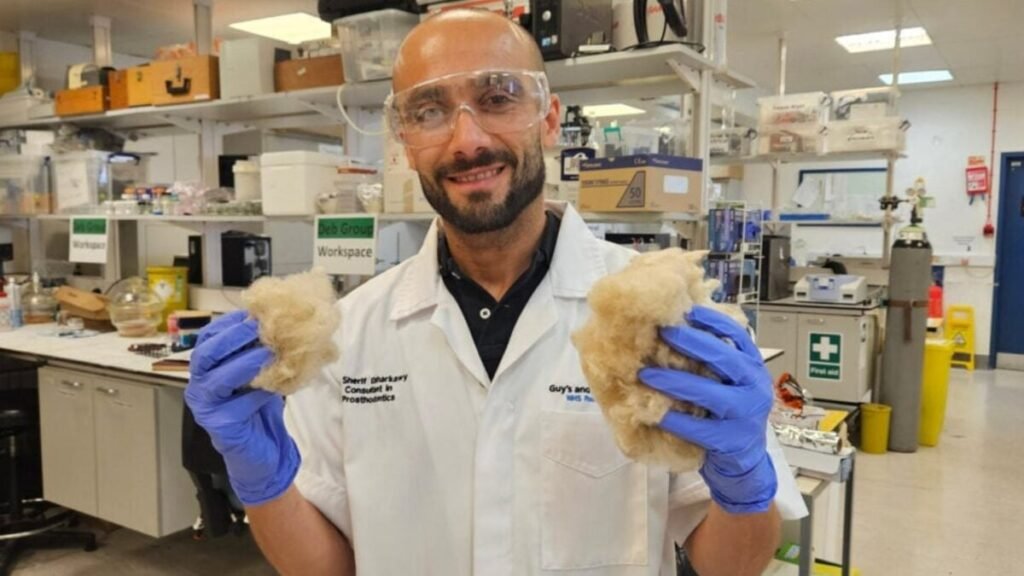Scientists Develop Toothpaste containing Hair Keratin that Exhibits Superior Performance compared to Fluoride

The breakthrough from King’s College London reveals that keratin, a protein found in hair, skin, and wool, not only protects teeth from cavities but can also regenerate lost enamel.
An Unexpected Discovery in Dental Care
This discovery represents a significant change in dentistry, as enamel wear could only be delayed in the past, not reversed. Enamel naturally erodes with age, acidic diet, and poor hygiene, and was considered irreplaceable. However, keratin seems to offer a groundbreaking solution.
According to a study in Advanced Healthcare Materials, keratin, when in contact with saliva, forms a protective layer that mimics the natural structure of enamel. Unlike fluoride, which only delays damage, keratin could repair weakened surfaces and restore their original function.
How Keratin Toothpaste Works
Keratin interacts with mouth minerals to create a dense crystalline framework that mimics the color, structure, and resistance of the original enamel. Over time, this framework attracts calcium and phosphate ions from saliva, leading to the formation of a new enamel layer on the damaged tooth. This not only protects against cavities but can also seal exposed nerves and reverse dental erosion symptoms.
In laboratory tests, keratin extracted from wool was used, but scientists suggest it could also be obtained from human hair or other biological waste. This makes it a sustainable and environmentally friendly resource, reducing dependence on toxic plastics used in traditional dental materials.
Impact on Dentistry and the Environment
The potential of manufacturing regenerative toothpaste from biological waste opens the door to a more sustainable dentistry. Lead author Sara Gamea highlights that keratin offers a transformative alternative that is sustainable, eliminates the need for toxic plastic resins, and is more durable.
Aside from clinical advantages, the project represents a step towards eco-friendly dental practices that reduce the industry’s environmental footprint. Researchers anticipate that a keratin toothpaste could be available on the market within the next two or three years, offering effective alternatives to fluoride for millions of people.
Co-author Dr. Sherif Elsharkawy emphasizes the potential of the discovery, stating that biotechnology allows for the restoration of biological functions using materials from the body itself. In the future, something as simple as a haircut could lead to stronger and healthier smiles.






